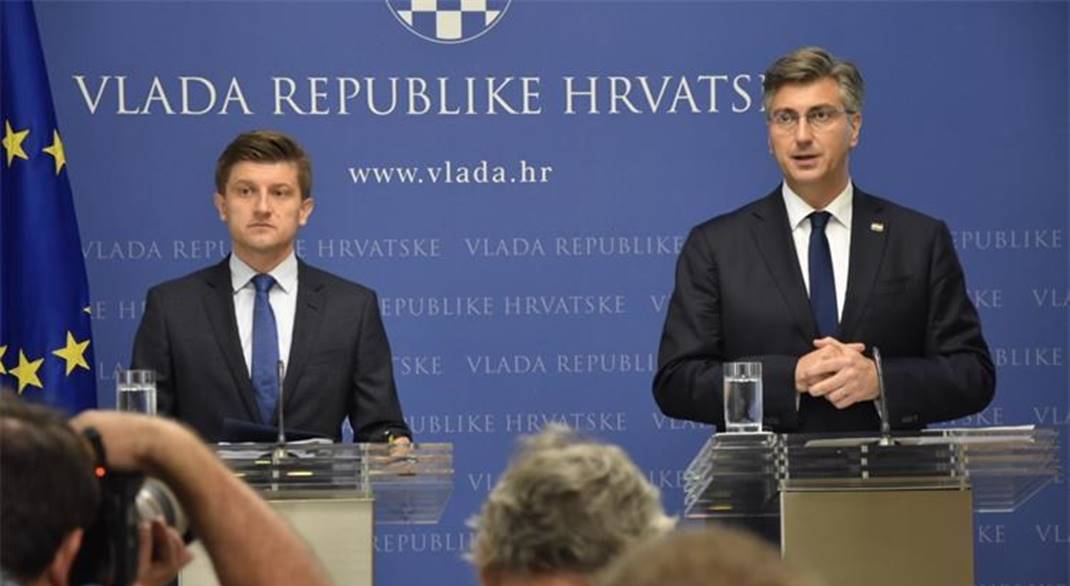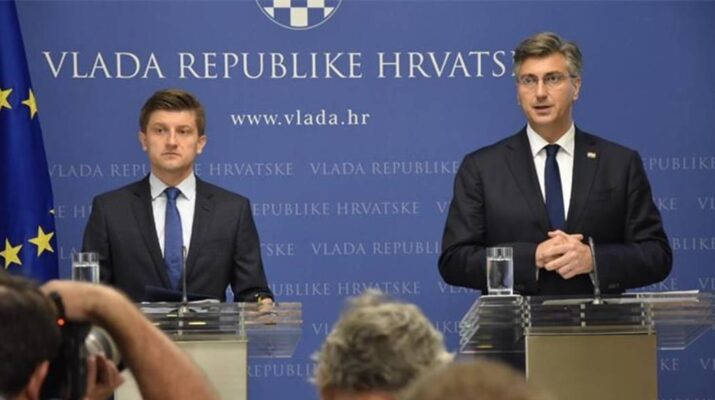From today, tips can be transferred to the card, salaries and the minimum wage are increasing, and women will retire later…

From the first day of the new year 2024, several things are changing. Citizens should also have slightly higher salaries, given that the tax reform is coming into force. The minimum wage will also increase…
Every year on January 1, changes arrive, so this year is no exception. As of today, the kuna will go down in history, because the dual display of prices in kuna and euros has officially ceased, citizens’ salaries should rise slightly due to the tax reform, and employers are allowed to increase employee bonuses, as the maximum annual tax-free amount that can be paid to workers increased from 2,455.49 euros to 3,020 euros. There will be more non-working Sundays in stores than this year.
On the first day of 2024, all county and general hospitals became the property of the state. Most of the local self-governments have accepted the new law enabling this transition, but the City of Zagreb, Međimurje, and Krapina-Zagorje counties will request an assessment of the constitutionality of this provision of the amended law.
Tax reform
Changes are also coming in the pension system. The retirement age for women was 63 years and three months, but women could remain in employment until the age of 65. As of today, that age is changing and will be 63 years and six months, with at least 15 years of service. That is, women will be able to take early retirement at 58 years and six months, more precisely at 33 years and six months of service.
Citizens should have slightly higher salaries as of today, given that the tax reform comes into effect. However, a lot depends on where you live and whether your gross salary is higher or lower than 1300 euros. The minimum wage is increasing the most, by 20 percent. The gross amount will be 840 euros.
The Income Tax Ordinance, the amendments to which were published in the Official Gazette at the beginning of December, and most of them will enter into force at the beginning of 2024, will increase the amounts of tax-free receipts that employers can pay to employees in numerous categories.
Thus, the maximum annual amount that employers will be able to pay to all workers in the name of a special reward, which includes, for example, Christmas bonus and vacation pay, will rise to 700 euros from today, which is 36.38 euros more than the current 663.62 euros.
The monetary flat-rate award for the costs of food for workers previously amounted to a maximum of 796.44 euros, and from this year it will increase to 1,200 euros, which is 403.56 euros more.
Occasional prizes
Rewards to workers will be tax-free up to 250 euros per month. The fee for using a private car is increased from 40 to 50 cents.
Furthermore, the reward for work results, which refers to additional salary or salary supplements, increases from 995.43 euros to 1,120 euros from this year, which is a jump of 124.57 euros.
Presenting the proposal for changes to the income tax rulebook when it was submitted for public consultation, the Minister of Finance Marko Primorac pointed out at a press conference on November 7 that the amount of tax-free receipts that an employer can pay to each employee in one year, and when it comes to occasional rewards, rewards for work results and food costs, will increase by 564.5 euros from January 1, 2024.
Non-taxable expenses are also growing in some other categories, for example, the fee for using a private car for official purposes will rise to 0.50 euros per kilometer traveled from January 1, 2024, which is 25 percent more than the current 40 euro cents.
Per diems for official trips in the country are also increasing, which from this year will be tax-free up to 30 euros, compared to the current 26.55 euros.
Growth of Jubilee awards
Last year, support for a worker due to disability amounted to 331.81 euros, for death in the immediate family 398.17 euros, for long-term sick leave 331.81 euros, while support for the child of a deceased worker reached 232.27 euros. From January 1, up to 560 euros in each of the categories will be paid tax-free on behalf of these grants.
The non-taxable amount of severance pay for workers on retirement is also increasing, from the previous maximum of 1,327.24 euros to 1,400 euros as of this year.
When it comes to possible tax-free receipts of workers for completed years of service, the award for completed 10 years increases from EUR 199.09 to EUR 280 from January 1, 2024, for 15 years the upper limit rises from EUR 265.45 to EUR 336, for 20 years from 331.81 to 392 euros, while for 25 years of service, workers will be able to pay tax-free up to 448 euros from this year, compared to the current 398.17 euros.
Tax-free awards for those who have reached the age of 30 increase from 464.53 to 504 euros, for 35 years from 530.90 to a maximum of 560 euros, and for 40 years and every subsequent five years from 663.62 to 672 euros.
As of today, a new system of taxing tips is being introduced. They enter the state budget only when they exceed the annual amount of 3,360 euros, and it is expected that a larger number of establishments will introduce card payments.
This year, citizens will feel a greater difference due to non-working Sundays, because this year the system of 16 working Sundays was introduced only on July 1, so there were more working weeks than there will be in 2023. Traders filed a constitutional complaint due to non-working Sundays.
(24 sata)
Napomena o autorskim pravima: Dozvoljeno preuzimanje sadržaja isključivo uz navođenje linka prema stranici našeg portala sa koje je sadržaj preuzet. Stavovi izraženi u ovom tekstu autorovi su i ne odražavaju nužno uredničku politiku The Balkantimes Press.
Copyright Notice: It is allowed to download the content only by providing a link to the page of our portal from which the content was downloaded. The views expressed in this text are those of the authors and do not necessarily reflect the editorial policies of The Balkantimes Press.

